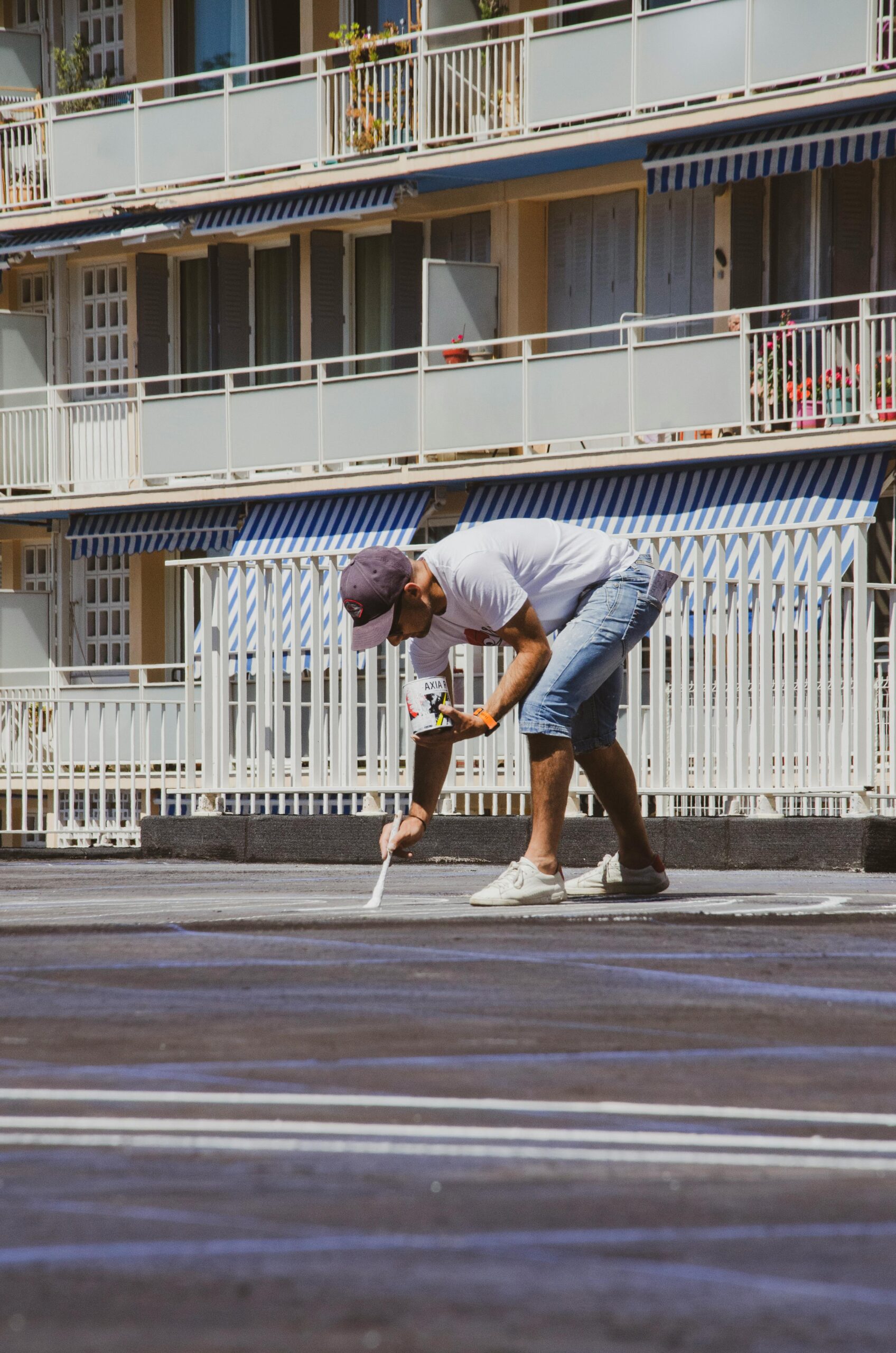Imagine owning your dream vacation home in the beautiful country of France. Whether you’re lounging in a charming cottage in Provence or overlooking the sparkling Mediterranean Sea on the French Riviera, owning a property in France is a dream come true for many. But as a non-resident, obtaining a mortgage might seem like a daunting task. However, rest assured that getting a mortgage in France as a non-resident is indeed possible. In this article, we will explore the options and requirements for non-residents looking to finance their dream home in France. From understanding the application process to the necessary documents, we will guide you through the steps to make your dream a reality.

Benefits of getting a mortgage in France
Low interest rates
One of the main advantages of getting a mortgage in France is the low interest rates. The current market conditions in France make it an attractive option for non-residents looking to invest in a property. Compared to other countries, the interest rates in France are relatively low, allowing borrowers to save money in the long run.
Flexible terms and conditions
Another benefit of getting a mortgage in France is the flexibility in terms and conditions offered by lenders. Non-residents have the option to choose the duration of their mortgage, typically ranging from 5 to 30 years. Furthermore, borrowers can negotiate the repayment schedule and choose between fixed or variable interest rates, depending on their financial situation and preferences.
Access to a wide range of properties
By obtaining a mortgage in France, non-residents have access to a wide range of properties, from charming rural houses to stylish apartments in bustling cities. France’s diverse real estate market offers something for everyone, whether you are looking for a vacation home or a long-term investment.
Access to French property market
One of the significant advantages of getting a mortgage in France is the opportunity to access the country’s property market. Investing in French real estate can provide a stable and profitable investment opportunity, as the market has consistently shown resilience, even during uncertain economic times. By obtaining a mortgage, non-residents can tap into this market and potentially benefit from the growth in property value over time.
Opportunity for investment
Getting a mortgage in France can be a strategic financial move for non-residents. With favorable interest rates and a stable property market, purchasing a property in France can offer various investment opportunities. Whether you plan to rent out the property or resell it in the future, owning real estate in France can provide a potential source of income and long-term financial stability.
Requirements for non-residents to obtain a mortgage in France
Proof of income
To qualify for a mortgage in France, non-residents are generally required to provide proof of income. This typically includes recent payslips, tax returns, and bank statements. Lenders need to assess the borrower’s ability to repay the loan and ensure they have a stable source of income.
Down payment
Non-residents looking to obtain a mortgage in France will also need to provide a down payment towards the property’s purchase price. The amount required as a down payment can vary depending on the lender, the borrower’s financial situation, and the type of property being purchased. In general, a down payment of at least 20% of the property’s value is recommended.
Good credit history
A good credit history is an essential requirement for non-residents looking to obtain a mortgage in France. Lenders will review the borrower’s credit report to assess their financial responsibility and determine their creditworthiness. It is crucial for potential borrowers to maintain a good credit score and resolve any outstanding debts before applying for a mortgage.
Residency in a non-sanctioned country
Non-residents applying for a mortgage in France must be residents of a non-sanctioned country. Lenders have restrictions in place regarding the issuance of mortgages to individuals residing in countries subject to economic sanctions or political instability. It is important for borrowers to verify their residency status before starting the mortgage application process.
Financial stability
Lenders in France also require borrowers to demonstrate financial stability. This includes having a secure employment status, a stable income, and a sustainable debt-to-income ratio. Lenders want to ensure that borrowers can comfortably meet their monthly mortgage payments without facing financial strain.
Types of mortgages available for non-residents in France
Fixed-rate mortgages
Fixed-rate mortgages are a popular option for non-residents in France. With a fixed-rate mortgage, the interest rate remains the same for the entire duration of the loan. This provides borrowers with stability and predictability in their monthly mortgage payments, making it easier to plan their finances.
Variable-rate mortgages
Variable-rate mortgages, also known as adjustable-rate mortgages, offer a lower initial interest rate compared to fixed-rate mortgages. However, the interest rate can fluctuate over time based on market conditions. This type of mortgage is suitable for individuals who are comfortable with potential interest rate changes and are willing to take on some level of risk.
Interest-only mortgages
Interest-only mortgages allow borrowers to pay only the interest portion of the loan for a specific period, usually ranging from 5 to 10 years. This option can provide lower initial monthly payments, but it is important to note that the principal balance does not decrease during the interest-only period. Borrowers must be prepared for higher monthly payments once the interest-only period ends.
Combination mortgages
Combination mortgages, also known as hybrid mortgages, offer a combination of fixed and variable interest rates. This type of mortgage provides borrowers with the opportunity to benefit from the stability of a fixed rate and the potential savings of a variable rate. Combination mortgages typically start with a fixed-rate period and then transition to a variable rate for the remaining duration of the loan.
Foreign currency mortgages
Foreign currency mortgages are an option for non-residents who receive their income in a different currency than the Euro. With this type of mortgage, the loan and repayments are denominated in a foreign currency. It is important to consider the potential risks associated with currency fluctuations when opting for a foreign currency mortgage.
Choosing the right lender for a mortgage in France
Researching and comparing lenders
When getting a mortgage in France, it is important to research and compare different lenders to find the one that best suits your needs. Take the time to investigate the reputation, interest rates, and terms of various lenders to ensure you are making an informed decision.
Checking lender’s reputation
Before choosing a lender, it is essential to check their reputation in the market. Look for reviews, testimonials, and ratings from previous borrowers to get an idea of their trustworthiness and reliability. A reputable lender will have a history of providing excellent customer service and transparent mortgage terms.
Considering customer service
Customer service is an important factor to consider when selecting a lender for your mortgage in France. You want to work with a lender who is responsive, helpful, and attentive to your needs. Prompt communication and clear explanations can make the mortgage application process smoother and less stressful.
Understanding the lender’s requirements
Each lender may have slightly different requirements for non-residents applying for a mortgage in France. It is crucial to understand what documentation and qualifications they expect from borrowers. By familiarizing yourself with these requirements, you can better prepare and increase your chances of approval.
Seeking professional advice
If navigating the mortgage process in France seems overwhelming, consider seeking professional advice. Mortgage brokers and financial advisors who specialize in international transactions can provide valuable guidance and help you find the right lender and mortgage product for your specific situation.

The process of applying for a mortgage in France
Gathering necessary documents
The first step in applying for a mortgage in France is gathering all the necessary documents. This typically includes proof of identity, proof of income, bank statements, tax returns, and details about the property being purchased. Having these documents organized and readily available will help streamline the application process.
Submitting the application
Once you have gathered all the required documents, you can submit your mortgage application to the lender of your choice. Some lenders allow online applications, while others may require in-person visits or the assistance of a mortgage broker. Follow the lender’s guidelines and submit all the necessary paperwork to initiate the assessment process.
Credit assessment by the lender
After submitting your application, the lender will conduct a thorough credit assessment to determine your eligibility and risk profile. They will review your financial history, credit score, and debt-to-income ratio to assess your ability to repay the loan. This assessment is a critical factor in determining the terms and interest rate of your mortgage.
Mortgage offer and acceptance
If your application is approved, the lender will provide you with a mortgage offer detailing the terms and conditions of the loan. Take the time to review this offer carefully and seek professional advice if needed. If you are satisfied with the terms, you can proceed with accepting the mortgage offer.
Completion and signing of the contract
Once the mortgage offer is accepted, the final step is the completion and signing of the mortgage contract. This typically involves working with a notary to finalize the legal aspects of the transaction. The contract will outline the repayment schedule, interest rate, and any other relevant terms and conditions.
Additional costs and fees associated with mortgages in France
Notary fees
When obtaining a mortgage in France, borrowers are responsible for paying notary fees. These fees cover the cost of the notary’s services in overseeing the legal aspects of the property purchase and mortgage agreement. Notary fees can vary depending on the property value and the complexity of the transaction.
Property valuation fees
Before approving a mortgage, lenders typically require a property valuation to assess its market value and determine the loan amount. The cost of this valuation is usually borne by the borrower. It is important to budget for these fees when considering the overall costs of obtaining a mortgage in France.
Mortgage arrangement fees
Lenders may charge mortgage arrangement fees to cover the administrative costs associated with processing the mortgage application. These fees can vary between lenders, so it is important to inquire about them upfront and factor them into your budget.
Insurance premiums are an additional cost that borrowers should consider when obtaining a mortgage in France. Lenders often require borrowers to have property insurance to protect against damage or loss. Additionally, life insurance may be required to cover the outstanding mortgage balance in the event of the borrower’s death.
Early repayment penalties
Before entering into a mortgage agreement, it is important to be aware of any early repayment penalties that may apply. Some lenders impose penalties or fees if borrowers choose to repay their mortgage early or make significant overpayments. It is essential to understand these penalties and factor them into your financial planning.

Risks and precautions to consider when getting a mortgage in France
Currency fluctuations
One risk to consider when getting a mortgage in France is currency fluctuations. If you receive your income in a different currency, changes in exchange rates can affect your mortgage repayments. It is important to assess your risk tolerance and consider potential currency movements before opting for a foreign currency mortgage.
Interest rate changes
Although interest rates in France are currently low, they can fluctuate over time. If you choose a variable-rate mortgage, the interest rate may increase in the future, resulting in higher monthly payments. Consider your financial stability and ability to handle potential interest rate changes when selecting a mortgage type.
Hidden fees and charges
Hidden fees and charges can catch borrowers by surprise and increase the overall cost of getting a mortgage in France. It is crucial to carefully review the terms and conditions, ask questions, and inquire about any potential additional fees before finalizing the mortgage agreement. Transparency is key to avoiding unpleasant surprises.
Lack of market knowledge
Non-residents may lack the necessary knowledge of the French property market when considering a mortgage. It is important to conduct thorough research, seek professional advice, and familiarize yourself with the local market trends and regulations. Understanding the market can help you make informed decisions and minimize risk.
Legal implications
Entering into a mortgage agreement in France involves legal obligations and implications. It is essential to understand your rights and responsibilities as a borrower, as well as the legal frameworks governing property transactions in France. Consulting with legal professionals can provide clarity and ensure compliance with all relevant laws and regulations.
Tax considerations for non-residents with a mortgage in France
Income tax obligations
Non-residents with a mortgage in France may have income tax obligations. Rental income generated from the property may be subject to income tax in France. It is important to consult with a tax advisor to understand the specific tax laws and obligations that apply to your situation.
Wealth tax obligations
Wealth tax, also known as “Impôt de Solidarité sur la Fortune” (ISF), may be applicable to non-residents with a mortgage in France. This tax is based on the value of your worldwide assets, including the property, and applies to high net worth individuals. Seeking professional tax advice is crucial to understand your potential wealth tax obligations.
Potential tax benefits
Non-residents who obtain a mortgage in France may be eligible for certain tax benefits. For example, mortgage interest payments may be tax-deductible in some circumstances. These tax benefits can help reduce your overall tax liability and make property ownership in France more financially beneficial. Consult with a tax advisor to explore any potential tax advantages.
Seeking professional tax advice
Given the complexity of tax laws and the potential implications of property ownership in France, it is highly recommended to seek professional tax advice. A tax advisor with experience in cross-border transactions can help you navigate the tax landscape, ensure compliance, and optimize your tax position.
Tax implications of selling the property
When selling a property in France, non-residents may be subject to capital gains tax. The tax liability depends on various factors, including the length of ownership and the property’s value at the time of sale. It is important to consider the potential tax implications and consult with a tax advisor before selling your French property.
Alternative options for financing a property in France
Cash purchase
One alternative option for financing a property in France is to make a cash purchase. If you have sufficient funds available, buying a property outright can eliminate the need for a mortgage and the associated costs and obligations. Cash purchases provide flexibility and may strengthen your bargaining position as a buyer.
Vendor financing
Vendor financing, also known as seller financing or a vendor take-back mortgage, is another option for financing a property in France. In this arrangement, the seller offers to finance part or all of the purchase price, allowing the buyer to make payments directly to the seller. This can be an attractive option for buyers who do not qualify for traditional mortgages or prefer more flexible terms.
Equity release
For property owners who already own a property in France, equity release can be an option to finance another property or access funds for other purposes. Equity release allows homeowners to borrow against the value of their property, typically in the form of a mortgage or an annuity. It is important to consider the terms and potential risks associated with equity release before pursuing this option.
Bridge loans
Bridge loans, also known as interim financing or swing loans, provide temporary financing to bridge the gap between the purchase of a new property and the sale of an existing one. This can be a helpful option for non-residents who need immediate funds for a property purchase but are waiting for the sale of another property to finalize.
International mortgage brokers
International mortgage brokers specialize in assisting non-residents with obtaining mortgages in foreign countries, including France. These brokers have extensive knowledge of the local market, lenders, and regulations, making the mortgage application process smoother and more efficient. Engaging an international mortgage broker can help you compare options and find the best financing solution for your needs.
Conclusion
Getting a mortgage in France can offer numerous benefits for non-residents looking to invest in the country’s diverse and resilient property market. With low interest rates, flexible terms, and access to a wide range of properties, France provides a favorable environment for property ownership and investment. However, it is important to carefully consider the requirements, risks, and costs associated with obtaining a mortgage in France. By conducting thorough research, seeking professional advice, and understanding the legal and tax implications, you can make an informed decision and embark on a successful property purchase journey in France.
